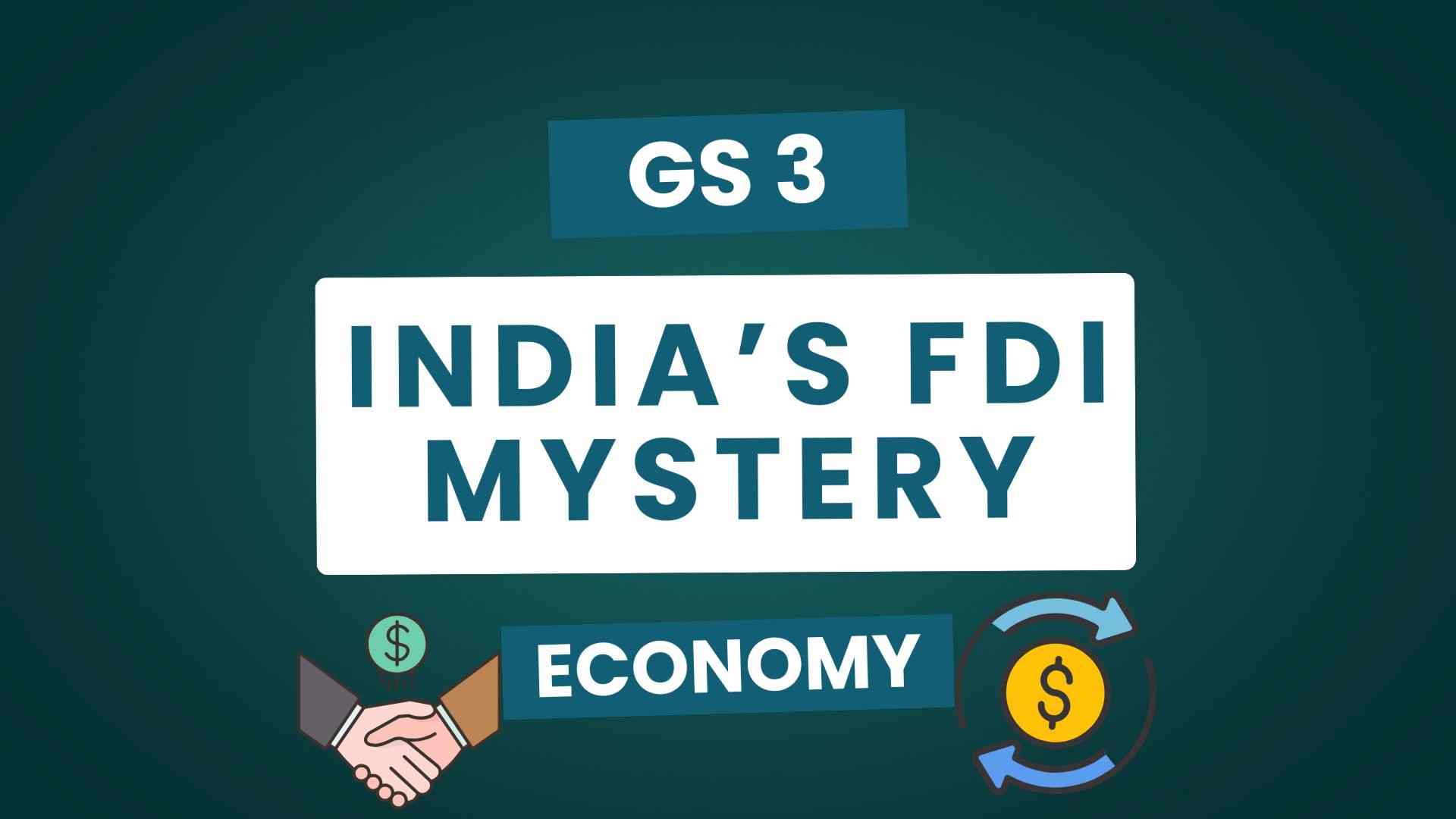☰ More GS 3 Topics
Topics for Indian Economy
Syllabus for Indian Economy
- Indian Economy and issues relating to Planning, Mobilization of Resources, Growth, Development and Employment
Indian FDI Mystery- Important UPSC Notes
India received a 13.7% increase in total FDI (Gross FDI Inflow). But the net FDI (after removing disinvestment) was just $0.4 billion, a huge fall...
Read More »


